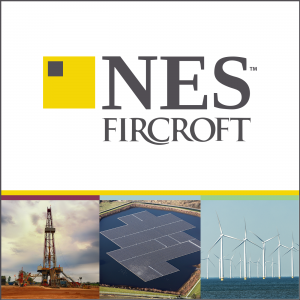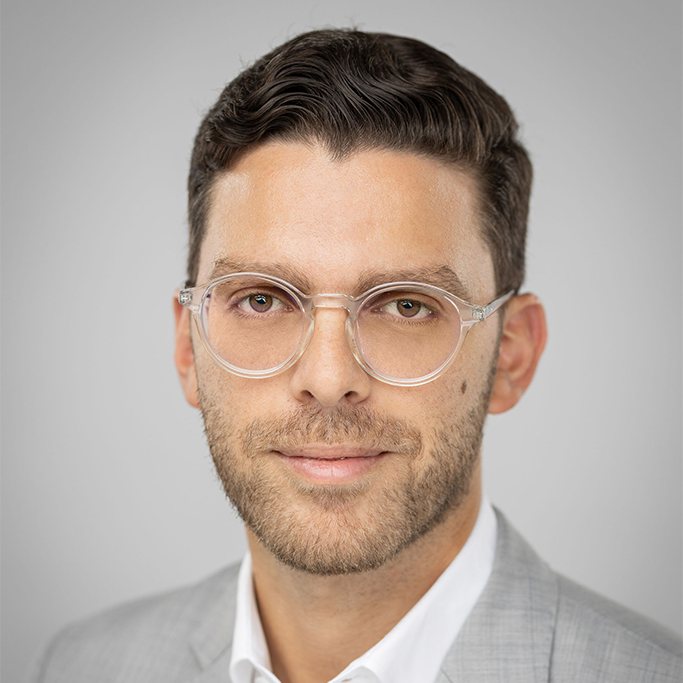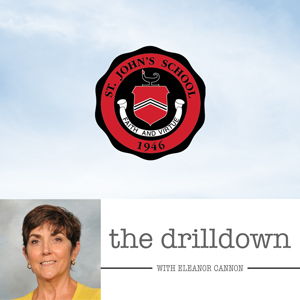Middle East energy job opportunities with NES Fircroft, November 2022
Description
Thanks for listening to the NES Fircroft channel on the EKT Interactive Energy Podcast Network.
About NES Fircroft

With over 90 years' combined experience delivering workforce solutions to the global energy industry, NES Fircroft is proud to be the world's leading engineering staffing provider spanning the Oil & Gas, Power & Renewables, Infrastructure, Life Sciences, Mining, Automotive and Chemicals sectors.
NES Fircroft provides tailored staffing solutions, sourced from a global talent pool by a dedicated, discipline specific team of consultants.
About the Expert
Mr. Zahi Kamar NES Fircroft Managing Consultant

Originally from Lebanon Zahi is now based in dynamic and multicultural Dubai.
Zahi has been with NES since 2014. He has an interesting angle on energy transition having made the switch himself from oil & gas to renewables.
In this podcast episode, Zahi shares his insight into Middle East job opportunities in solar, wind, hydropower, nuclear and the evolving hydrogen economy – including what he’s seeing with digitalization in these sectors.
Podcast Support
Lauren Webb – Content Manager for NES Fircroft
Based in Altrincham, Lauren is responsible for all web, blog and video communications as well as the EngineeringPro Insights newsletter.
This podcast is designed to get you current on industry developments that can affect your career selection in the Middle East.
Marty Stetzer – President of EKT Interactive
Marty has over 30 years in the industry and has worked onsite in Saudi Arabia.
Since 2018, his team has provided NES with a digital training curriculum covering oil & gas, power and renewables.
Relevant Links
EngineeringPro Insights Newsletter
Energy 101 – eLearning for the Energy Industry
Transcript
Lauren Webb:
Hi everyone, and welcome. I’m Lauren Webb, the Content Manager for NES Fircroft, based in Altrincham.
So I look after all things content, including videos, podcasts, articles, and our Engineering Pro newsletter.
This podcast is one of the learning resources available to our NES candidates. It’s designed to get you current on industry developments that can affect your career selection in the Middle East.
Our NES industry expert on opportunities in this region is Zahi Kamar, based in Dubai. Zahi has been with NES since 2014 and has a very interesting angle on the energy transition, having made the switch himself from oil and gas to renewables.
He’ll be interviewed by Marty Stetzer, President of EKT Interactive in Houston.
Marty has over 30 years in the industry and has worked onsite in Saudi Arabia. Since 2018, his team has provided NES Fircroft with a digital training curriculum covering oil and gas, power and renewables.
Marty Stetzer:
Thanks, Lauren, and thanks to our listeners for taking the time today.
Welcome, Zahi. We’re really happy to have your insights, especially with a massive transition from oil and gas to renewables underway around the world.
Zahi Kamar:
Thanks, Marty. Good to be here.
Marty Stetzer:
Before we get started, can you give us a quick summary of your career, especially your Middle East experience?
Zahi Kamar:
Yes, most happy to do so. I was originally born in Lebanon, also in the Middle East. I grew up in a family of five. I started my career as a financial analyst, which is obviously far away what I’m doing right now.
I stumbled across recruitment in 2014 and I came across a job with NES, where I joined as a graduate recruiter back then, and eight years later I’m still with them progressing to management level.
I’m based in Dubai in the United Arab Emirates, and my focus has been since the day one the energy sector, which obviously involves many aspects. Started my career in oil and gas and moved recently to the power and renewables sector.
Moving to Dubai was obviously quite challenging, moving away from home. It’s difficult at the start.
It’s very fast-paced, very competitive market, but Dubai is a very multicultural city and working for NES has definitely helped me integrate into the culture and into the country.
It’s opened up a lot of opportunities for me to travel, to meet people from all over the world, and to really grow both on a career level and a personal level.
Marty Stetzer:
Zahi, that’s terrific background for our topic. So let’s get started.
In your region, is the energy transition under way and in what way?
Zahi Kamar:
Oh, absolutely. I mean, the energy transition has started probably about 10 years ago. Middle East is historically an oil-rich part of the world and has always been for the past 100 years.
What we’ve seen in the last 10 to 15 years especially, due to different events, for example the downturn of the oil prices in 2015, that’s when we started to see countries start to change their perspective on oil and start to realize they have to expand their economies and expand their horizon to be able to keep up with the world, and that accelerated massively, especially after COVID in 2020.
We’ve seen countries on the forefront of this transition, like the UAE to begin with, where they were the only country in the region that started to explore a mega project on the solar side or the renewables side, where they built a huge solar park in Dubai, followed very quickly by a nuclear plant.
Since then, since the last two, three years especially, we’re starting to see this being replicated all across the GCC countries and the Middle East region as a wider region.
These countries are obviously very rich in oil, as you mentioned.
However, they also started to realize they have huge access to resources, renewable resources, and to begin with the sun. Obviously, it’s pretty much sunny here 90% of the year, if not 100%.
They started to seek these new avenues of generating energy, and to me, first of all, the local demand of the growing population, as well as achieving net zero emissions, which everyone around the region has signed up for this on different years and different targets.
But overall industry and overall transition is also to reduce the reliance on the oil and gas revenue and expand and increase the GDP within other sectors, including tourism, infrastructure, technology, but more importantly, the sources of energy.
Marty Stetzer:
So, Zahi, what kind of hot job opportunities are these new projects creating, not only for recent graduates but also to reposition oil and gas professionals to participate in the new industries?
Zahi Kamar:
Definitely it has, and it’s definitely been a challenging transition from what we hear from our clients, our candidates, from obviously senior people, senior stakeholders, and different and various businesses.
To begin with, the transition naturally will increase the number of roles when we’re talking about multi-million dollar or multi billion dollar projects, for example Neom project in Saudi Arabia, which is expected to spend around $500 billion over the next five years.
We expect over 500,000 jobs to be able to meet this mega project. That mega project consists of a lot of aspects, and the biggest part of it probably is renewable energy, to generate power in different resources and a different manner than previously done.
So, naturally you can see a higher demand in expertise or types of candidates that they would need to be able to achieve these projects and reach a level where they are comfortable with the talent in the region.
Now, naturally you look at different parts of the world where they have done this previously, for example in the West, in the US and in Canada and Europe.
They have been doing or focusing on the renewable resources since a long time ago. So, naturally the initial resources would come from there. However, this is only temporary.
Governments and countries are looking at how they can drive their local population and the local talent, whether it is nationals or ex-pats living in their own countries, to either start fresh graduates, start thinking about joining the industry from the start, and actually starting the education before that within the aspect.
Naturally, the ex-pats working in oil and gas sector start thinking about how they can transition into the renewables sector by looking at their skills, what are their transferable skills, what are the aspects that they’ve learned over the years that they can look to take away and move to a different industry.
As started by m










